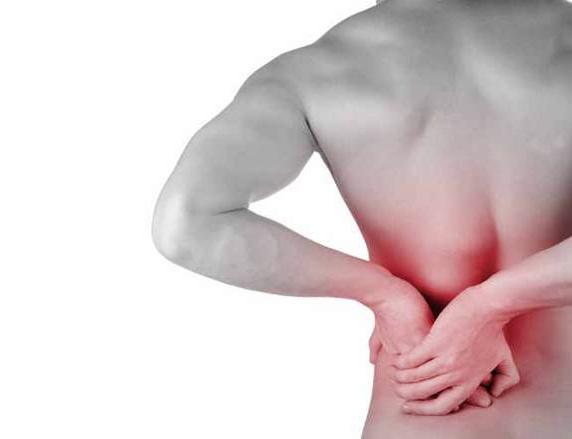As I stand poised to become a great uncle for the first time, it makes me ponder the importance of nurturing and child rearing and how vital touch is to our human need. Touch is so vital from our very first moments of life and science tells us that it is vital for our development on a fundamental level. The essence of touch and nurturing in our infancy has huge implications on our physical and psychological development and even the size of our brains. Oddly, touch has become out of fashion in contemporary western society and there needs to be a redress on how we connect with touch in our culture to ensure that we aren’t making ourselves and more importantly our future generation disadvantaged.
There are numerous studies and research that has looked at touch and it’s impact on our ability to develop and have healthy interactions with our fellow humans and environment as we grow and interact. Harry Harlows empirical research (Total social isolation in monkeys. Proceedings of the National Academy of Sciences of the United States of America.) in the 1960’s with primates, established ground breaking evidence around the importance of maternal touch in infant primates. His findings still inform us on the need for nurturing and ‘loving’ touch to develop healthy social behaviours and physical interactions with the outside world. The importance of the parent-child relationship in these early stages was paramount to enabling infant primates to become inquisitive, curious and develop healthy explorations of the outside world. This work still informs much of our understanding around human behavioural development today.
Physical contact is something that has been inherent in our makeup and interaction since we were primates. It establishes relationships and covets a sense of trust. It can also be used as a power tool and be overzealously abused by those wishing to dominate or take advantage of others. Understanding touch and consenual touch is vital and a learning curve of individuals and societal norms. But we can’t not touch. As Robin Dunbar Professor of Evolutionary Psychology at Oxford University says: “it all stems back to our early history as primates when stroking of hairy skin triggered the endorphin system in our brain which makes us feel warm and positive” . Psychologist Sidney Jourard conducted studies in the 1960’s over touch and culture. He found that the amount of touch we are exposed to can be dependent on our culture. His findings showed the UK hardly ever touched, US citizens in bursts of enthusiasm touche twice, whereas the French touch 110 times per hour and the Puerto Ricans touch up to 180 times. It is vital for us to be touched. Touch yields trust. Basic warming touch calms our cardiovascular system. Touch activates our Vagus Nerve that stimulates compassion and the release of oxytocin. Touch helps us connect with each other and reinforce our sense of community and connection.
In Romania in the 1970’s/80’s, thousands of children were thrown into orphanages as the population exploded and the country descended into inept financial management. Following Nicolae Ceaucescu’s overthrow in 1989, neurobiologist Mary Carlson and physchiatrist Felton Earls visited the “decretei,” (children of the decree) who were starved of human contact in the orphanages and found these victims to be withdrawn, mute, socially inept and displaying bizarre stereotypical movement patterns and violent behaviour. The images of these children shocked the world at the time and have become an example of what happens to children when they are denied the basic nurturing parental love that is sometimes taken for granted.
Certain situations have contributed to a mistrust in touch and an awareness of ‘overstepping’ the bounds of physical contact which has created a reduction in touch and how we interact socially. Decades of sexual misconduct finally being brought out in the open, encouragement by medical schools to enforce a ‘no touch trend’, foster carers being instructed to avoid touch in order to mitigate potential liability is all helping to reinforce a ‘no touch’ society. And now with COVID-19 fears, this has compounded the situation where touch in our daily lives is reducing and becoming more rare.
With these fears and concerns at the forefront of many people’s current reality, how do we negotiate touch and how do we interact with physicality? Who hasn’t had that awkward moment when you’ve gone to shake someones hand of late and then remembered that we should be doing a fist bump or elbow touch…? It’s a new space. Erika Hughes, academic lead for performance at the University of Portsmouth, talks about the future being a new space where touch has it’s role to play but on a slightly different level. She believes that our sense of touch and our willingness to offer, embrace or take part in it, will be discretionary and will come to an ‘inner circle’ of people in your social group. Those who will be part of you tactile world and those who don’t. “It could heighten how we do value touch when you finally get to do it,” We may well reserve the tactile hug, handshake or pat on the back for more intimate groups and this could actually heighten our understanding and appreciation of touch.
Touch Therapy and indeed Massage Therapy is known and documented to have beneficial health benefits as well as promoting beneficial results for people suffering from disease and discomfort. Tiffany Field a Professor at the University of Miami and Director of The Touch Institute, has conducted research into direct links to touch and post natal women (and their partners) and the alleviated suffering of post natal depression. She also has conducted research on autistic children being massaged by therapists or parents to be hugely beneficial to alleviate their sense of confusion or anxiety with the world. UC Berkeley’s School of Public Health documents eye contact and a non invasive touch (such as a hand on a shoulder) has direct links to survival rates of patients with complex diseases. Alzheimers sufferers are known to exhibit relaxed demeanours and encouraged emotional connections along with reduced depression when they experience touch. There are most assuredly ways in which we can integrate touch back into our lives that have therapeutic benefit in a safe environment without the risk of harm or exposure to disease.
When we don’t touch, we risk an increase in stress hormones. There are a hundred different stimuli in our world that trigger our fight or flight response. Our brain stem creates signals that release cortisol and adrenaline into our bodies at all points of the day. Touch can help to waylay these signals and calm the system via the Vagus Nerve by reassuring our brain that we are safe and in a non threatening environment. Steve Cole, a behavioural psychologist at the University of California talks about the value of touch in the isolated COVID world. “You can think of physical touch, supportive and affectionate touch, as the most fundamental signal that you’re with somebody who cares about you . . . a fundamental signal of safety and well-being.” So it is important even if you do live alone and follow all the social isolating rules out there, that we get our fix of touch somehow in the day. Not only that but touch actually stimulates and improves our immune system to fight off infections and the common cold. Studies in 2014 at Carnegie Mellon University found that in a test group of 400 adults, those who received hugs were less likely to yield to a rhinovirus or influenza infection. So oddly, touching can actually benefit our immune response which is at the forefront of many people’s concerns right now.
Controlling our touch is important and especially in the current climate we are much more aware of it’s potency. However attitudes to touch will begin to revert naturally and whilst we are all very touch aversive right now, there is belief that we can return to embracing, kissing, shaking hands or whatever our cultural way of sharing touch is without needing to be concerned. It’s vital that we find a way to connect with those in our inner circle so that we get the vast benefits of touch and all that it does to help us waylay stress and keep our sense of connectedness. It makes us healthy, happy humans.



